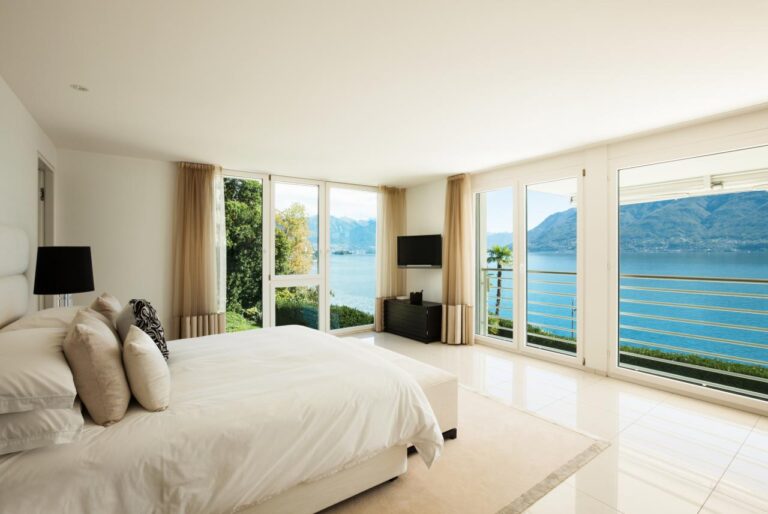The Unique Landscape of Hotel Investing

Hotel investing stands apart from other real estate ventures due to its dual nature: it’s both a property asset and an operating business. This hybrid structure presents both distinct opportunities and specific challenges.
A. A Hybrid Asset
Unlike traditional real estate (e.g., office buildings, residential apartments) that primarily generate rental income, a hotel functions as a full-fledged operating business housed within a real estate asset. This means:
A. Operational Income: Revenue is generated daily from room sales, food and beverage, meetings and events, spa services, and other ancillary offerings. This provides dynamic income potential.
B. Staffing and Management: Hotels require extensive staff (housekeeping, front desk, F&B, maintenance, sales) and robust management teams to ensure smooth operations and guest satisfaction.
C. Seasonal Fluctuations: Revenue is highly susceptible to seasonality, local events, economic cycles, and travel trends, making forecasting and revenue management critical.
D. Guest Experience Focus: The success of the business hinges on delivering an exceptional guest experience, requiring continuous investment in service quality and facility maintenance.
This duality means investors must understand both real estate fundamentals and hospitality operations.
B. Diverse Investment Structures and Opportunities
The hotel investment landscape offers a variety of structures, catering to different risk appetites and investment goals.
A. Direct Ownership: Investors directly purchase and own the hotel property. This provides full control but also assumes all operational responsibilities and risks. Owners may manage it themselves or hire a third-party management company.
B. Management Contracts: The investor owns the real estate, but hires an experienced hotel management company (often a major brand like Marriott, Hilton) to operate the property. The management company typically receives a base fee plus an incentive fee based on performance. This offers professional expertise and brand power.
C. Franchise Agreements: The investor owns and operates the hotel, but licenses a brand name (e.g., Holiday Inn Express, Hampton Inn) from a major chain. The brand provides marketing, reservation systems, and operational standards, while the owner retains more operational control than with a management contract.
D. Lease Agreements: An investor leases a hotel property from an owner, operating it as a tenant. This provides operational control with less upfront capital expenditure but also carries lease payment obligations.
E. Real Estate Investment Trusts (REITs): Investing in publicly traded hotel REITs offers a liquid way to gain exposure to the hotel sector without direct ownership. REITs own and operate income-producing real estate, including hotels, and are required to distribute a significant portion of their taxable income to shareholders.
This diversity allows investors to choose a model that aligns with their strategic objectives.
C. Capital-Intensive Nature and Long-Term Horizon
Hotel investing is inherently capital-intensive, requiring significant upfront investment for acquisition, construction, or renovation. It is also typically a long-term investment horizon, where returns materialize over several years.
A. High Development Costs: Constructing a new hotel involves substantial costs for land acquisition, building materials, specialized fit-outs, and FF&E (furniture, fixtures, and equipment).
B. Ongoing Capital Expenditures (CapEx): Hotels require continuous reinvestment for renovations, maintenance, and technological upgrades to remain competitive and appealing to guests.
C. Cyclical Nature: The hospitality industry is cyclical, influenced by economic booms and downturns. Long-term investors can ride out these cycles, benefiting from appreciation and sustained income over time.
D. Liquidity: Hotel assets can be less liquid than publicly traded stocks, requiring a longer time frame to sell.
D. Revenue Generation and Performance Metrics
Understanding how hotels generate revenue and the key performance metrics is crucial for investors.
A. Average Daily Rate (ADR): The average revenue earned per occupied room per day.
B. Occupancy Rate: The percentage of available rooms that are occupied over a given period.
C. Revenue Per Available Room (RevPAR): A key metric, calculated as ADR multiplied by the occupancy rate, or total room revenue divided by total available rooms. It measures revenue generation per available room.
D. Gross Operating Profit Per Available Room (GOPPAR): A more comprehensive metric that assesses profitability by deducting operating expenses from revenue per available room.
E. Ancillary Revenue: Income from F&B, meeting spaces, spa, retail, and other services, which can significantly contribute to overall profitability.
Investors analyze these metrics closely to assess a hotel’s operational health and potential returns.
E. Sensitivity to External Factors
Hotel investing is highly sensitive to external factors, making market analysis and risk assessment paramount.
A. Economic Conditions: Economic growth, consumer spending power, and corporate travel budgets directly impact demand.
B. Travel Trends: Shifts in leisure travel preferences (e.g., experiential travel, bleisure), business travel patterns, and the rise of alternative accommodations (e.g., Airbnb) can affect market dynamics.
C. Geopolitical Events: Political instability, natural disasters, and health crises (e.g., pandemics) can severely disrupt travel and hotel demand, highlighting the importance of diversification and robust risk management.
D. Local Market Dynamics: Supply and demand in specific geographic markets, competition from new hotel developments, and local regulatory environments (e.g., tourism taxes, short-term rental rules) are critical.
E. Exchange Rates: For international investments, currency fluctuations can significantly impact returns.
Key Investment Strategies in Hospitality
Investors employ various strategies to enter and capitalize on the hotel market, each with distinct risk-reward profiles.
A. Value-Add and Repositioning
This strategy involves acquiring underperforming hotels or properties in need of significant renovation and then implementing improvements to enhance their value and market positioning.
A. Renovation and Upgrade: Investing in property-wide renovations, including rooms, public areas, and F&B outlets, to appeal to a higher-paying clientele.
B. Brand Repositioning: Changing the hotel’s brand affiliation to a more suitable or higher-tier brand that better aligns with its new market positioning.
C. Operational Improvements: Implementing more efficient management practices, optimizing staffing, and enhancing service quality to improve guest satisfaction and profitability.
D. Strategic Marketing: Relaunching the hotel with a new narrative and targeted marketing campaigns to attract desired customer segments.
This strategy typically requires substantial capital and operational expertise but can yield high returns.
B. Ground-Up Development
Ground-up development involves building a new hotel from scratch. This strategy offers the most control over design, efficiency, and brand integration but also carries the highest risk and longest lead times.
A. Site Selection: Crucial for success, focusing on prime locations with strong demand drivers and growth potential.
B. Design and Construction: Meticulous planning and execution to create a modern, efficient, and appealing property that meets current market demands and future trends.
C. Brand Affiliation: Securing a strong brand partner early in the development process can attract financing and future guests.
D. Pre-Opening Marketing: Building anticipation and booking commitments before the hotel officially opens.
This strategy is highly capital-intensive and requires deep expertise in real estate development and hospitality.
C. Stabilized Acquisitions
Stabilized acquisitions involve purchasing existing, well-performing hotels with consistent cash flows and established market positions.
A. Predictable Income: These assets typically offer more predictable income streams and lower operational risks compared to development or value-add projects.
B. Strong Market Presence: Often properties with established brands, loyal customer bases, and a proven track record in their respective markets.
C. Moderate Returns: While generally offering lower risk, the potential for outsized returns may be more limited compared to value-add or development.
D. Due Diligence: Thorough due diligence on financial performance, operational efficiency, and market conditions is critical before acquisition.
This strategy is favored by investors seeking stable, income-generating assets.
D. Distressed Asset Opportunities
In periods of economic downturn or market disruption (e.g., pandemics, recessions), distressed asset opportunities emerge. This involves acquiring hotels that are experiencing financial difficulties or are undervalued due to external factors.
A. Below Market Value: Opportunities to purchase assets at significantly reduced prices.
B. High Risk, High Reward: Carries higher risks due to the underlying issues (e.g., debt, operational mismanagement) but offers the potential for substantial returns if the assets can be stabilized and repositioned.
C. Workout Expertise: Requires expertise in financial restructuring, operational turnaround, and market timing.
D. Capital Availability: Investors with readily available capital are best positioned to capitalize on these opportunities.
This strategy is for seasoned investors with a high tolerance for risk and a strong ability to execute turnarounds.
E. Technology-Driven and Niche Investments
As the hospitality landscape evolves, investors are increasingly looking at technology-driven and niche investments.
A. “Smart” Hotels: Investing in properties that heavily integrate cutting-edge technology for guest experience and operational efficiency (e.g., IoT, AI-powered systems).
B. Eco-Hotels/Sustainable Properties: Capitalizing on the growing demand for environmentally friendly accommodation.
C. Boutique and Lifestyle Hotels: Investing in unique, design-led properties that offer distinct, authentic experiences.
D. Extended Stay Hotels: Catering to the growing demand from digital nomads, project-based workers, and “bleisure” travelers.
E. Glamping and Experiential Lodging: Investing in unique outdoor accommodation that blends luxury with nature immersion.
These niche segments often offer higher growth potential and cater to evolving consumer preferences.
Critical Factors for Hotel Investment Success

Achieving success in hotel investing requires meticulous due diligence, robust market analysis, and a keen understanding of operational nuances.
A. Location, Location, Location
As with all real estate, location is paramount. A prime location with strong demand drivers is critical for consistent occupancy and ADR.
A. Demand Generators: Proximity to corporate headquarters, convention centers, tourist attractions, airports, major transportation hubs, and cultural/entertainment venues.
B. Market Demographics: Understanding the local population’s income levels, employment rates, and consumer spending habits.
C. Competition: Analyzing the existing supply of hotel rooms, planned developments, and competitive pricing in the market.
D. Infrastructure: Access to reliable utilities, road networks, and public transport.
B. Brand Affiliation and Management Expertise
The choice of brand affiliation and management expertise significantly impacts a hotel’s performance.
A. Brand Power: A strong, globally recognized brand can drive reservations through its loyalty programs, marketing reach, and established distribution channels.
B. Management Track Record: Partnering with an experienced and reputable hotel management company is crucial for efficient operations, effective revenue management, and delivering high guest satisfaction.
C. Operational Efficiency: The ability of the management team to control costs, optimize staffing, and maintain high service standards directly impacts profitability.
C. Market Dynamics and Economic Outlook
Thorough analysis of market dynamics and the broader economic outlook is essential for assessing risk and potential returns.
A. Economic Indicators: GDP growth, employment rates, consumer confidence, and business investment directly influence travel demand.
B. Tourism Trends: Understanding shifts in leisure and business travel patterns, emerging destinations, and changing traveler preferences.
C. Supply and Demand: Monitoring new hotel developments and assessing whether market demand can absorb increased supply without impacting occupancy and rates.
D. Regulatory Environment: Awareness of local zoning laws, tourism taxes, labor laws, and any potential restrictions on operations.
D. Capital Structure and Financing
Optimizing the capital structure and securing favorable financing terms are critical for the financial viability of any hotel investment.
A. Debt-to-Equity Ratio: Balancing borrowed capital with equity to manage risk and maximize returns.
B. Interest Rates: Sensitivity to fluctuating interest rates, which can impact debt servicing costs.
C. Lender Relationships: Establishing strong relationships with lenders experienced in hospitality financing.
D. Government Incentives: Exploring any available tax incentives, grants, or subsidies for hotel development or renovation.
E. Technology Adoption and Adaptation
In the digital age, a hotel’s ability to adopt and adapt to new technology directly impacts its competitiveness and efficiency.
A. Property Management Systems (PMS): Investing in modern, integrated PMS for efficient operations.
B. Revenue Management Systems (RMS): Utilizing sophisticated RMS to optimize pricing and maximize revenue.
C. Guest-Facing Technology: Implementing mobile check-in, digital keys, smart room controls, and personalized communication tools to enhance guest experience.
D. Cybersecurity: Robust measures to protect guest data and hotel systems from cyber threats.
E. Marketing Technology: Leveraging digital marketing, social media, and online distribution channels to reach target audiences effectively.
F. Guest Experience and Reputation Management
Ultimately, the success of a hotel hinges on delivering an exceptional guest experience, which directly impacts its online reputation.
A. Service Quality: Training staff to deliver intuitive, personalized, and efficient service.
B. Facility Maintenance: Ensuring the property is well-maintained, clean, and appealing to guests.
C. Online Reviews: Actively monitoring and responding to guest reviews on platforms like TripAdvisor and Google, as these significantly influence booking decisions.
D. Loyalty Programs: Implementing effective loyalty programs to encourage repeat business and brand advocacy.
The Future of Hotel Investing
The hotel investment landscape is poised for continued evolution, driven by innovation, a heightened focus on sustainability, and the industry’s inherent resilience.
- Asset Light Models: An increasing shift towards asset-light models for major hotel brands, where they focus more on management and franchise fees rather than direct real estate ownership, freeing up capital for technology and brand expansion. This means more opportunities for independent real estate investors to partner with brands.
- ESG (Environmental, Social, Governance) Integration: ESG factors will become non-negotiable considerations in hotel investing. Investors will increasingly prioritize properties with strong sustainability credentials, fair labor practices, and positive community engagement, driving investment towards responsible development.
- Data-Driven Investment Decisions: Leveraging big data, AI, and predictive analytics will become even more sophisticated, enabling investors to make highly informed decisions on market selection, asset acquisition, pricing strategies, and operational optimization with unprecedented accuracy.
- Hybrid and Multi-Use Developments: Expect more hybrid and multi-use developments that combine hotels with residential units, co-working spaces, retail, and entertainment. This diversification provides multiple revenue streams and creates vibrant urban hubs, enhancing asset value and resilience.
- Wellness and Experiential Focus: Investment will surge in hotels that offer specialized wellness programs, immersive cultural experiences, and unique adventure opportunities, catering to the growing demand for transformative travel.
- Modular and Sustainable Construction: Adoption of modular and sustainable construction techniques will increase, reducing development time, costs, and environmental impact, making new hotel development more efficient and eco-friendly.
- Resilience and Crisis Preparedness: Post-pandemic, there will be a continued emphasis on building resilience and crisis preparedness into investment strategies, including robust liquidity planning, flexible operational models, and advanced risk management technologies.
- Direct-to-Consumer (D2C) Investment Platforms: The emergence of Direct-to-Consumer (D2C) investment platforms could democratize access to hotel investing, allowing smaller investors to participate in fractional ownership or crowdfunding opportunities in specific hotel assets.
Conclusion
Hotel investing remains a dynamic and attractive proposition for those willing to navigate its unique complexities. By understanding the blend of real estate and operational management, staying abreast of market trends, and adopting innovative strategies, investors can unlock significant opportunities within this thriving sector. As the world continues to travel, the demand for quality accommodation will endure, ensuring that hotels remain a cornerstone of lucrative investment portfolios for the foreseeable future.










